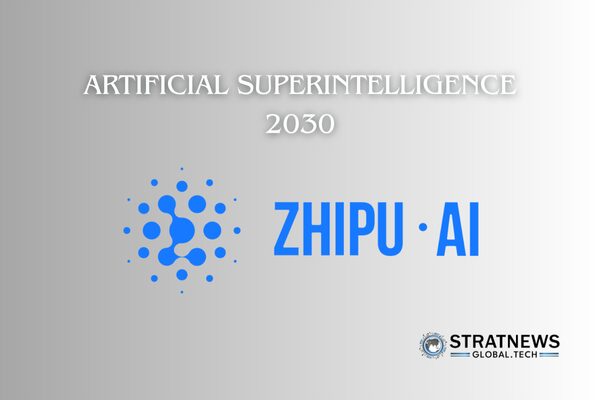Zhipu AI CEO: Artificial Superintelligence Could Surpass Humans in Some Areas by 2030
Artificial superintelligence (ASI) may become a reality as early as 2030, but its superiority over humans is likely to remain limited to specific areas, according to the head of one of China’s leading AI startups.
The timeline for ASI remains a subject of debate within the industry. OpenAI CEO Sam Altman recently suggested it could arrive by the end of the decade, while SoftBank CEO Masayoshi Son predicted it might appear by 2035.
A Complex and Unclear Concept
Zhang Peng, CEO of Zhipu AI, said on Tuesday that ASI is too vague a concept to tie to one definitive date. Speaking at the launch of the company’s latest large language model, GLM-4.6, he explained:
“Achieving or exceeding human intelligence levels by 2030 might mean surpassing humans in one or several aspects, but likely still falling far short in many areas.”
This more cautious outlook reflects the challenges of defining and measuring intelligence, particularly when applied to artificial systems.
Zhipu AI’s Rise in China’s Tech Landscape
Founded in 2019 as a spin-off from Tsinghua University, Zhipu AI has quickly become a major force in China’s AI race. The company filed documents in April signalling plans to list on domestic markets, further cementing its role in China’s tech sector.
In June, OpenAI identified Zhipu AI as a fast-rising rival and described it as part of China’s push to extend its AI presence abroad. Zhang responded that while the company was “flattered” by the recognition, its global expansion should be seen as “normal business.”
Competing in Global AI Markets
Zhang acknowledged that while Zhipu AI would not compete directly with US firms in consumer subscriptions yet, it was already challenging players like OpenAI in the enterprise sector. The company has also launched a coding subscription plan to target developers, part of its broader effort to build consumer-focused revenue streams.
He noted that convincing Chinese consumers to pay for AI services has been more difficult than in the US, but he expects attitudes to shift as AI becomes more widely valued and service costs decline.
Advancing Model Capabilities
The newly released GLM-4.6 model represents an upgrade to GLM-4.5, which debuted in July. According to Zhang, it delivers stronger performance in coding, reasoning, writing, and agent-based applications, marking a step forward in Zhipu AI’s technological development.
With debates continuing about the pace of AI progress, Zhang’s comments highlight a middle ground: while ASI could emerge within this decade, it may remain far from a complete substitute for human intelligence.
with inputs from Reuters


